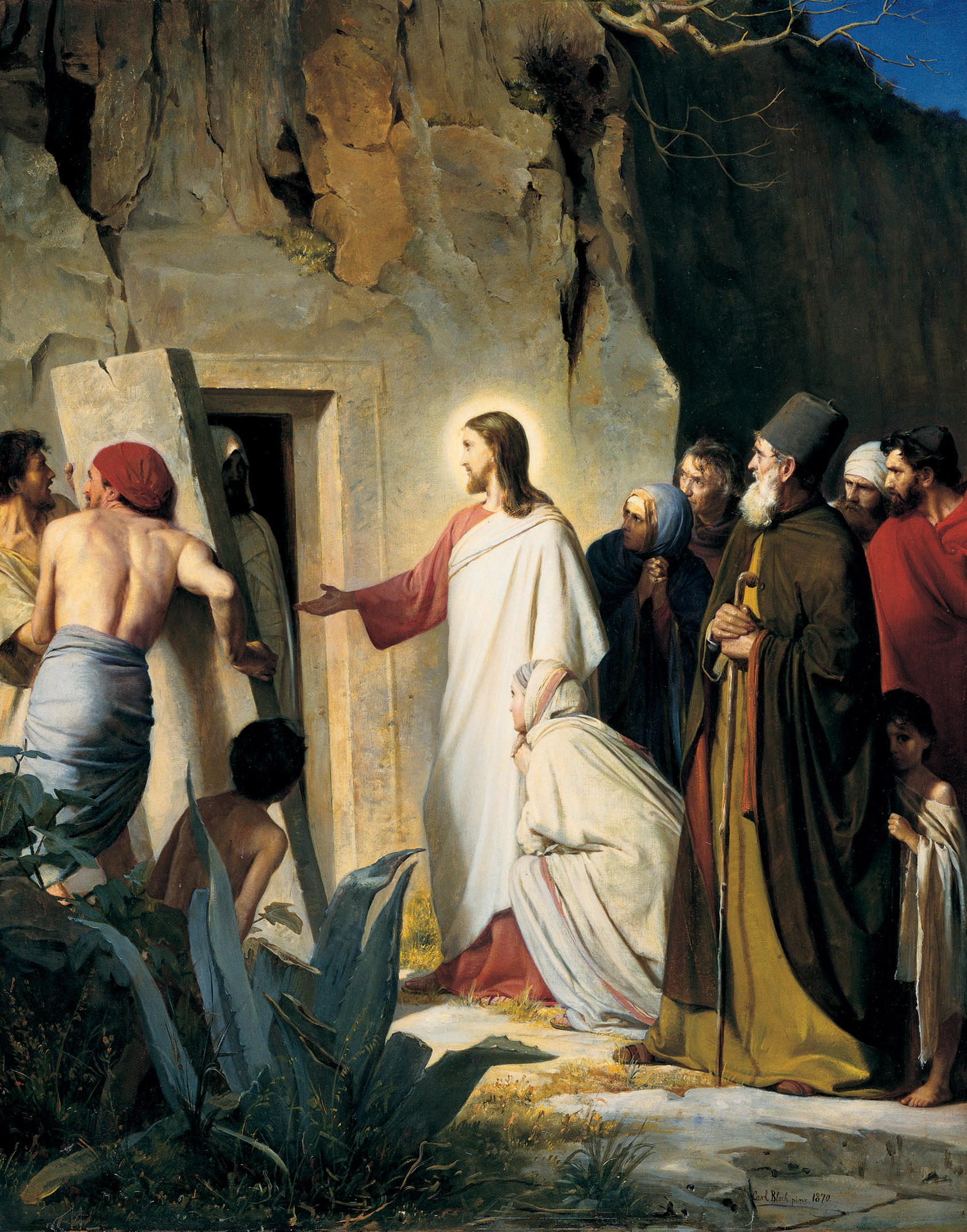 The readings for Mass today are very powerful, profound … and beautiful. Other than the account of Jesus’s own death and resurrection, there is no other story in the bible that moves us more deeply than the account of Jesus raising Lazarus from the dead.
The readings for Mass today are very powerful, profound … and beautiful. Other than the account of Jesus’s own death and resurrection, there is no other story in the bible that moves us more deeply than the account of Jesus raising Lazarus from the dead.
Maybe it is because we are afraid to die.
There is a place deep inside each one of us … that we push to the back of our mind and refuse to think about, or even face sometimes. The thought of our own death can be terrifying. It is the greatest mystery of life, the most important question that mankind has ever grappled with since the beginning of time.
What happens when we die? Is there life after death?
Atheists believe that we are like the animals. When we die, everything just goes black and we cease to exist. There is nothing beyond the grave. There is no other world than the one that you can see and touch. If you can’t see it or touch it, then it doesn’t exist. (Never mind that love is something that you can’t hold in the palm of your hand and look at it either, and yet we all know that love is real.)
Everyone reading these words today believes in love though. We believe that love endures forever, and it is indeed the only thing that will matter in the end. Love is all there is. Everything else is fool’s gold …
Jesus illustrates this in a profoundly beautiful way today. He does this not only through the spoken words in today’s gospel, which are eternally beautiful in and of themselves … but equally so, Jesus manifests His love through his actions.
The gospel said that Jesus loved Martha, her sister, and Lazarus. After he asked them where they had laid Lazarus, the gospel said that Jesus wept. Jesus actually cried. He stated earlier that he was glad that he had not been there when Lazarus died, that “this sickness will end not in death but in God’s glory, and through it the Son of God will be glorified.” But, if Jesus knew ahead of time that he would raise Lazarus from the dead – then why did he cry? The gospel said that Jesus was in great distress upon his arrival and then he cried when he saw Martha and Mary.
Perhaps the reason that Jesus was in great distress, to the point of crying himself, is because he loved them. He hurt with them. It hurt him – that they were hurting. Jesus joined in Martha and Mary’s suffering, immersing himself in what they were feeling in that moment. Far from standing on the outside looking in, Jesus in his compassion, entered into their suffering. He cared what they were going through and wanted to take the pain away.
This is something that we all need to think about. We shouldn’t blame Jesus when we suffer, like Mary did when she said, “Lord, if you had been here, my brother would not have died.”
Jesus doesn’t stand off at a distance watching us suffer, without entering into our suffering too. He is there in every moment of our suffering, but especially when our suffering is greatest.
The Lord is no longer here in the flesh though. He has no hands or feet, but ours. The body of Christ is His people, who are there to journey with us all the days of our lives, even through the experience of death. When we suffer, we can see His face reflected in the faces of those around us who love us too. But, Jesus is also there in the Spirit, supporting us and strengthening us with His love and His peace.
Death doesn’t have the final say. Jesus Christ does. Jesus Christ loved us so much that He died for us, of His own free will. He died for us so that we do not ever need to fear death again. Death is but a doorway into eternal joy. A doorway that leads to Jesus and everyone that we have loved during our lives. Love is what lives on – forever.
Jesus told Martha in today’s gospel, just before he raised Lazarus from the grave:
“I am the resurrection and the life.
If anyone believes in me, even though he dies he will live.
And whoever lives and believes in me will never die.”
Then, Jesus asked Martha, “Do you believe this?”
How would you answer Jesus? Do you believe this?
Your answer, is the only answer that matters – to the greatest question that mankind has ever asked.
Sunday Mass Readings:
Ezekiel 37: 12-14 / Psalm 130: 1-2, 3-4, 5-6, 7-8 / Romans 8: 8-11 / John 11: 1-45
